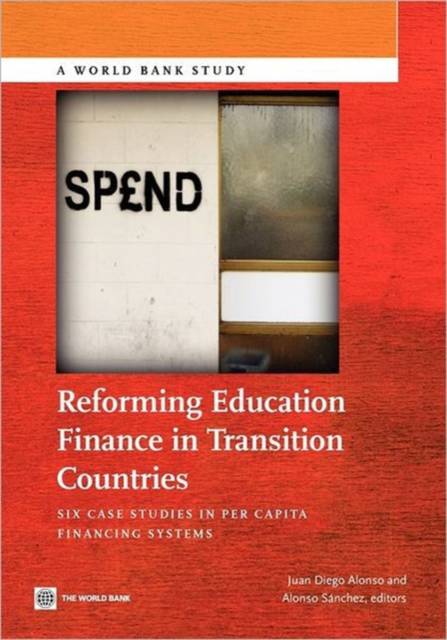
- Retrait gratuit dans votre magasin Club
- 7.000.000 titres dans notre catalogue
- Payer en toute sécurité
- Toujours un magasin près de chez vous
- Retrait gratuit dans votre magasin Club
- 7.000.0000 titres dans notre catalogue
- Payer en toute sécurité
- Toujours un magasin près de chez vous
Reforming Education Finance in Transition Countries
Six Case Studies in Per Capita Financing Systems
50,95 €
+ 101 points
Description
This book reviews the experience with one specific though widely introduced approach to funding general education, namely per capita financing (PCF), in six countries in the Europe and Central Asia (ECA) region in an effort to learn which outcomes were achieved and how. Six country case studies are the bulk of the book and were chosen as a project that the World Bank initiated back in 2007. The set of countries chosen (Armenia, Estonia, Georgia, Lithuania, Poland and the Russian Federation) was motivated by the fact that the World Bank was actively involved in supporting reforms in these countries and, in some cases, played a fundamental role in bringing these reforms to fruition. The hope is that, as a result, the likelihood of observing the outcomes of per capita financing is higher. An attempt was made at geographic variation across the ECA region as well. Chapter 1 provides a general introduction to the book. Chapters 2 through 7 discuss the country case studies. The case studies are presented in alphabetical order: Armenia (chapter 2), Estonia (chapter 3), Georgia (chapter 4), Lithuania (Chapter 5), Poland (Chapter 6), and Russia (chapter 7). All six chapters present a similar structure. First, an introduction is provided to motivate the discussion. Second, the historical background to the introduction of the PCF system is discussed. Third, the design of the PCF scheme is analyzed. Fourth, the peculiarities of the implementation of the scheme are described. Fifth, an assessment of a set of three main outcomes - efficiency, equity and transparency/accountability - is presented. A sixth and final section provides a summary of the lessons learned in each of the cases. Chapter 8 presents an in-depth overview of the case studies, within a common framework to compare these experiences.
Spécifications
Parties prenantes
- Editeur:
Contenu
- Nombre de pages :
- 336
- Langue:
- Anglais
- Collection :
Caractéristiques
- EAN:
- 9780821387832
- Date de parution :
- 06-07-11
- Format:
- Livre broché
- Format numérique:
- Trade paperback (VS)
- Dimensions :
- 178 mm x 254 mm
- Poids :
- 580 g

Les avis
Nous publions uniquement les avis qui respectent les conditions requises. Consultez nos conditions pour les avis.





